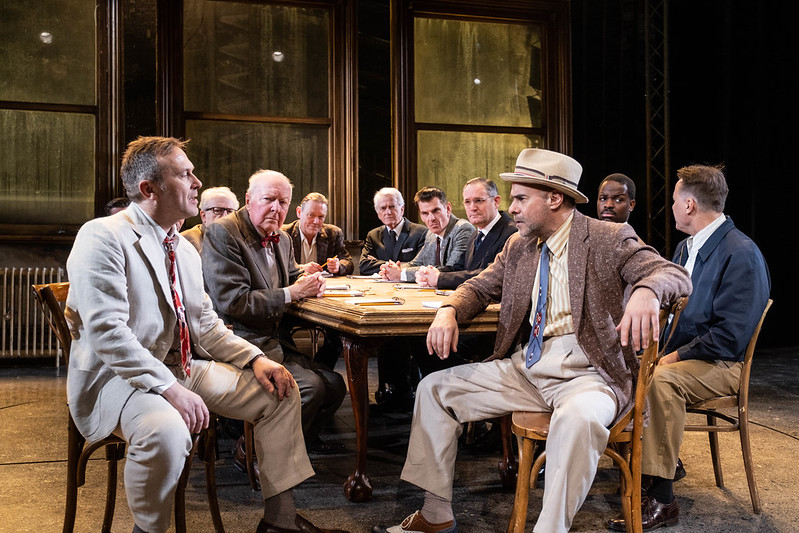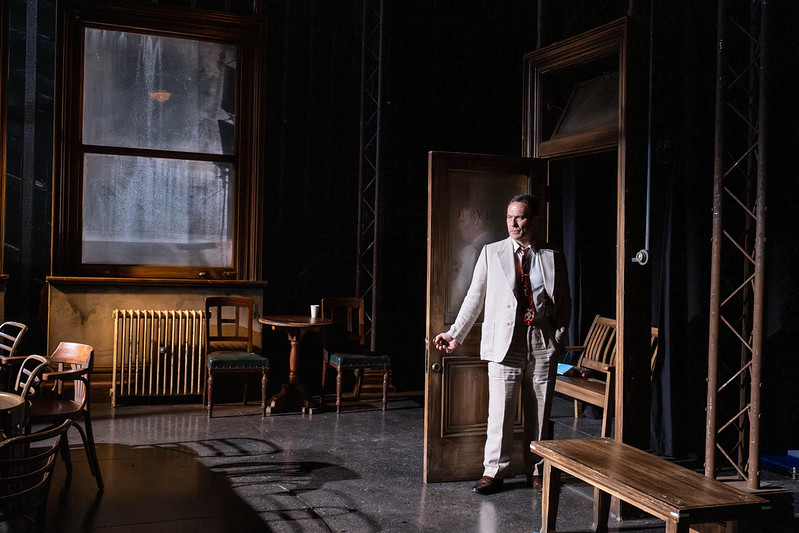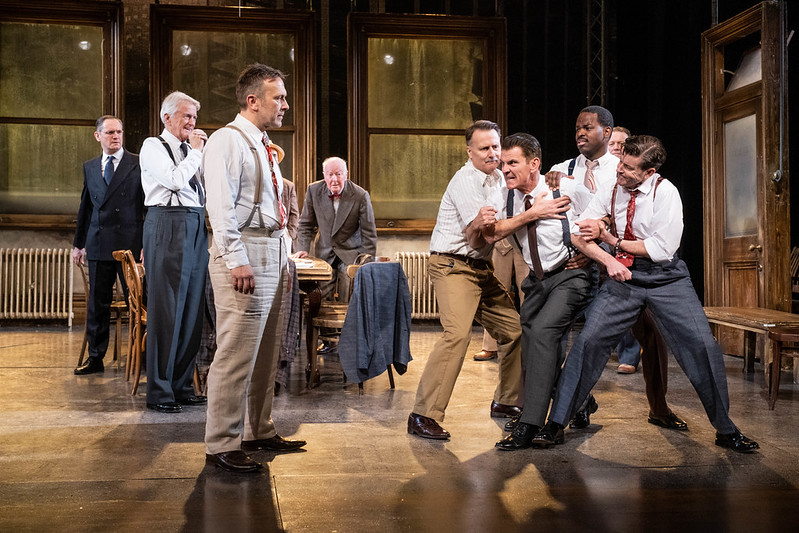A man is on trial for murder, and these twelve men hold his life in their hands.
That is the simple premise of Reginald Rose’s classic courtroom thriller, which takes place entirely within the confines of the jury room in a New York court on a sweltering summer’s day.
There are no pyrotechnics, no costume changes, no elaborate choreography. Just 12 men in a room. These 12 carry the narrative through its ebbs and flows, its spikes of anger and troubled silences.
The stakes could hardly be higher. If they vote ‘guilty’, the man on trial will be condemned to the electric chair.
Bill Kenwright Ltd’s production of Twelve Angry Men has enjoyed a record-breaking spell on the West End, and is now continuing its UK tour through 2024. Directed by Christopher Haydon, it features an all-star cast and is a true ensemble play.
The drama, which inspired the 1957 three-time Academy Award nominated film, follows an all-male jury in 1950s America deciding the fate of a 16-year-old boy who has allegedly stabbed his father to death. The all-male jury may be less realistic to a contemporary audience, but is crucial for the heated dynamics that underpin the play.
We enter the story as the jury are locked in a room to deliberate, but what initially appears a straightforward murder soon proves to be anything but.

The jury are from all walks of life and come with their own individual prejudices and stories which colour their view of the murder. The whole cast do an astounding job at drawing out these backgrounds and creating 12 wholly distinct, rounded characters, with the interplay between them the standout feature of the show.
Issues of race, class, and nature vs nurture come to the fore, and each character draws on their own strengths to flesh out the case, from one juror’s medical interest in others to another’s forensic eye for detail. Alliances – likely and unlikely – form and fray and ugly truths are revealed in front of a rapt audience, which at times seemed to hold its collective breath in anticipation of the next twist.
This is a play that delves deep into the human psyche and the jurors – who are known only by their seat numbers – are its beating heart. All are outstanding, but to name just a few, Juror 8 (Jason Merrells) is excellent as the story’s moral conscience, a thoughtful man who grows in stature as the evidence multiplies. Gray O’Brien has a tinderbox quality as Juror 10, making the audience and his fellow jurors increasingly uneasy as the drama ratchets up and his personal beliefs spill out. Juror 3 (Tristan Gemmill) gives a real tour de force as an angry, betrayed father, who produces some of the play’s most powerful moments.
There are also moments of genuine humour amid the conflict, which largely come from baseball-obsessed Juror 7 (Michael Greco)’s slapstick additions to proceedings and Juror 2 (Paul Lavers)’ devastatingly sarcastic put-downs.

The cast’s shifting dynamics are ably assisted by Michael Pavelka’s sparse set, as the jurors weave in and out of chairs around an imperceptibly-rotating table. The exposed lighting rigs and industrial metal surrounds lend a cramped, claustrophobic edge to the jury room.
Tempers flare throughout but alongside the shouting, some of the play’s most effective moments are in total silence. Flashes of quiet allow the creative team to shine.
There is no music to break the spell, only the soundscape of New York City. Andy Graham’s sound design is full of small, brilliant touches, from the creaking of an overhead fan to the rain running down the windowpanes. Chris Davey’s lighting design is also excellently crafted, particularly at showing the passage of time and echoing the peaks and troughs of the onstage drama.
Twelve Angry Men is not only immersive but also deeply thought-provoking, asking its audience to reconsider what we believe to be fact and what we understand of ourselves. It’s a play that lingers in the mind long after the actors take their final bows – to raucous applause.
At the Lowry until Saturday 2 March (tickets available here), it’s a must-see.
All image credits Jack Merriman, used with permission of the Lowry.



